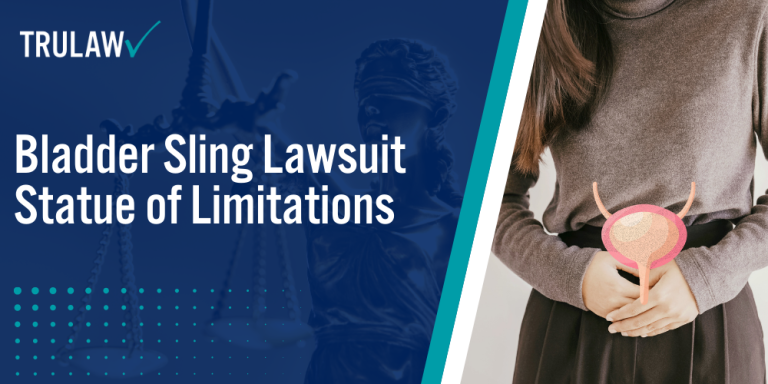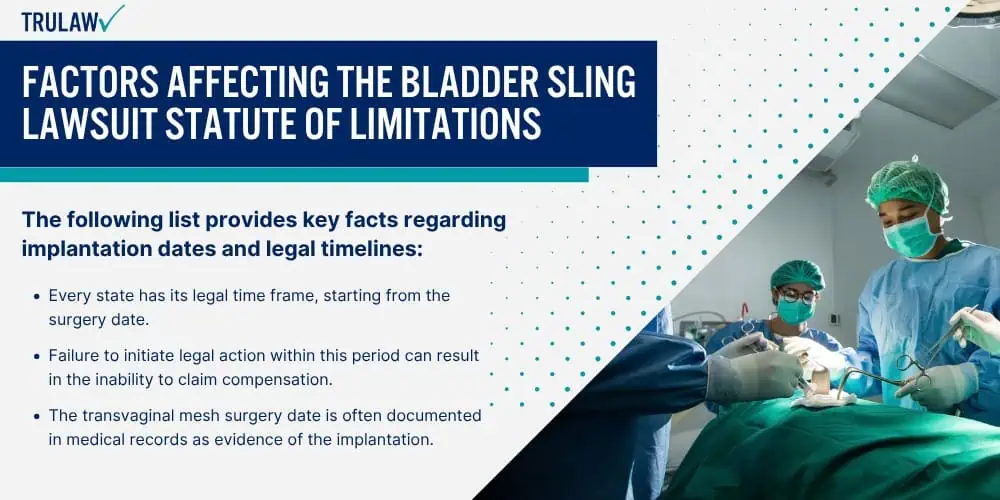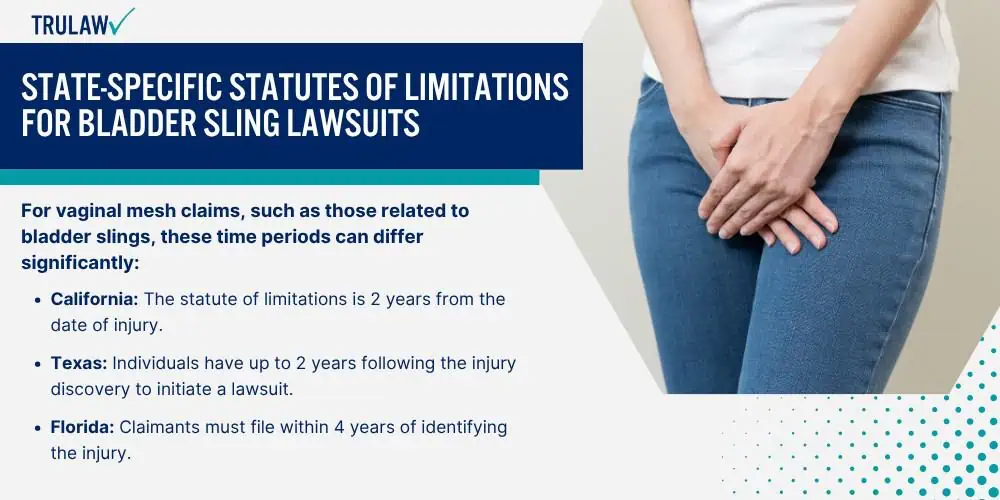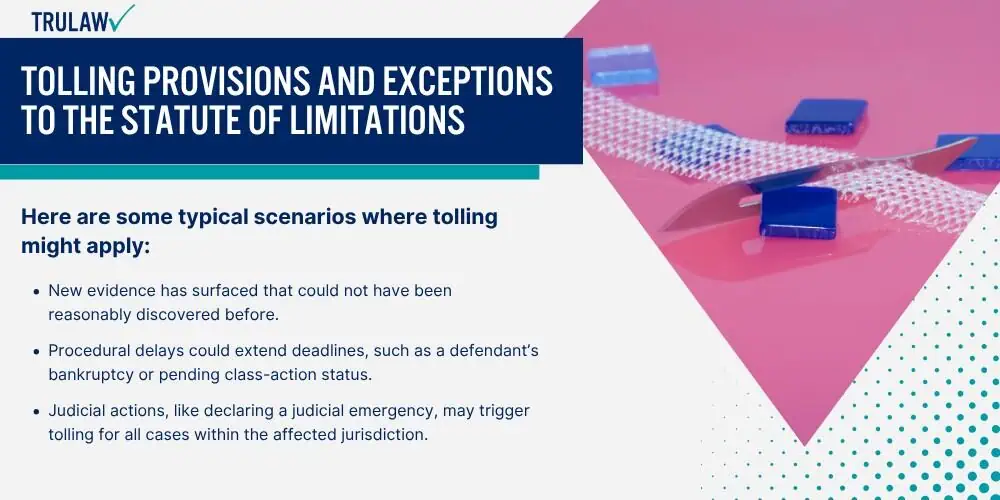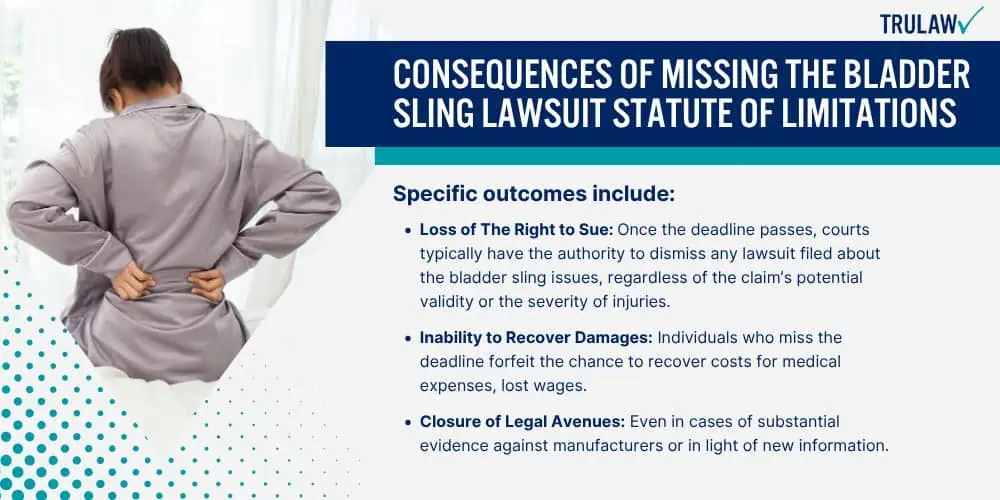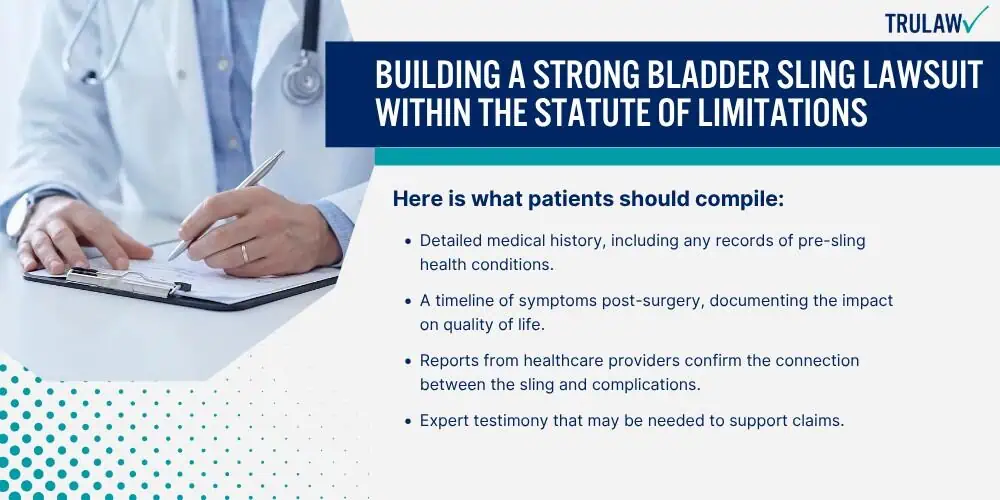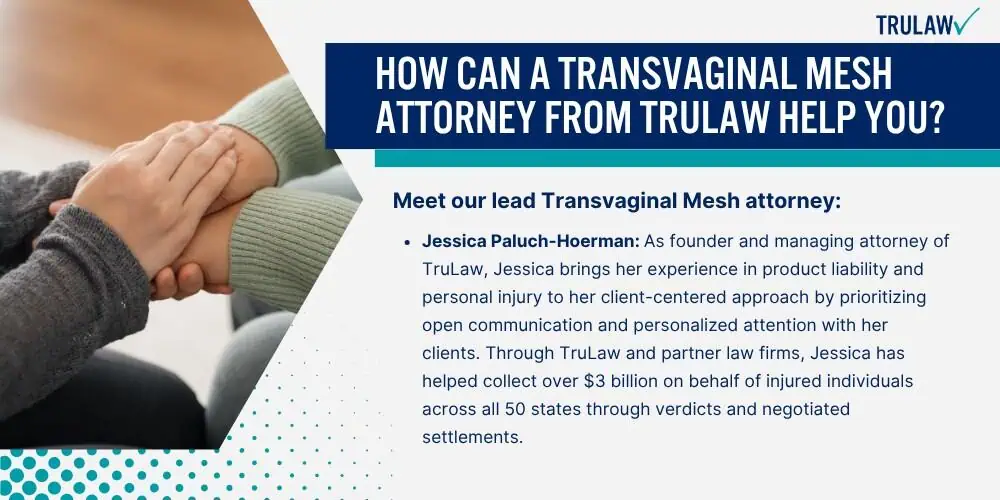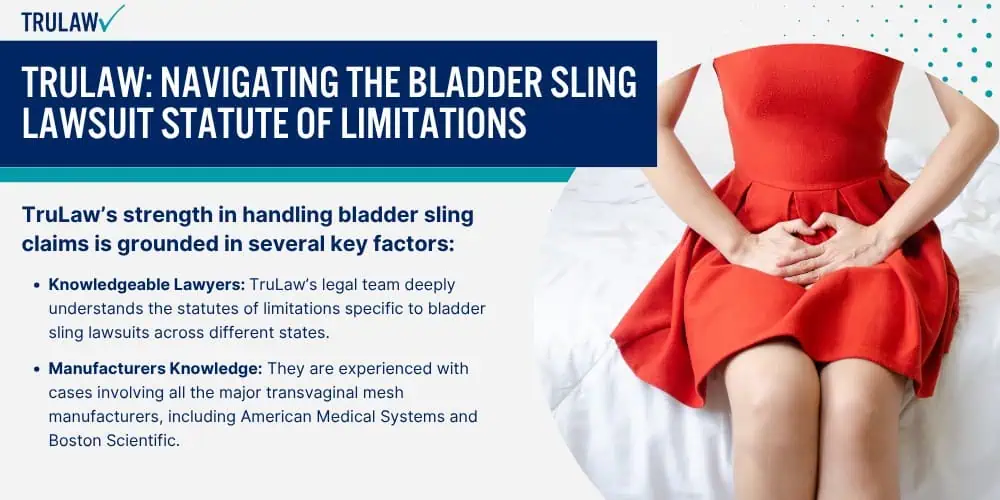Understanding and adhering to the statutes of limitations is key to maintaining the right to legal action when pursuing compensation for complications from a bladder sling or transvaginal mesh.
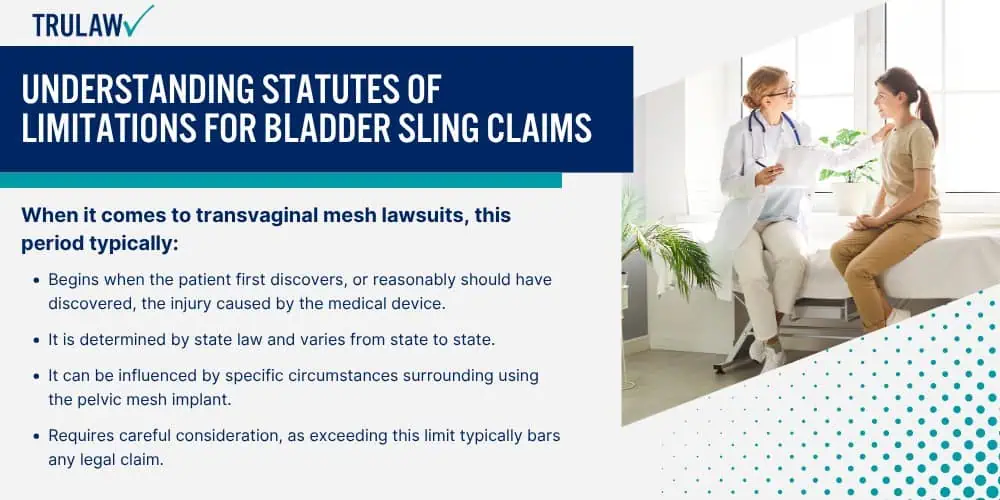
Definition of a Statute of Limitations
A statute of limitations sets the maximum time after an event within which legal proceedings may be initiated.
When it comes to transvaginal mesh lawsuits, this period typically:
- Begins when the patient first discovers, or reasonably should have discovered, the injury caused by the medical device.
- It is determined by state law and varies from state to state.
- It can be influenced by specific circumstances surrounding using the pelvic mesh implant.
- Requires careful consideration, as exceeding this limit typically bars any legal claim.
Importance of Timely Filing Bladder Sling Lawsuits
Filing a lawsuit within the prescribed timeframe is essential for a valid claim.
For vaginal mesh implants cases:
- Early Legal Consultation: It allows for a thorough claim evaluation within the legal time constraints.
- Medical Records Assessment: Gathering and reviewing medical documentation is time-consuming and must be started promptly.
- Identification of Liable Parties: It enables the identification of all parties that might be liable for medical device complications.
- Evidence Preservation: Prompt legal action helps to ensure that evidence remains available and unaltered.
